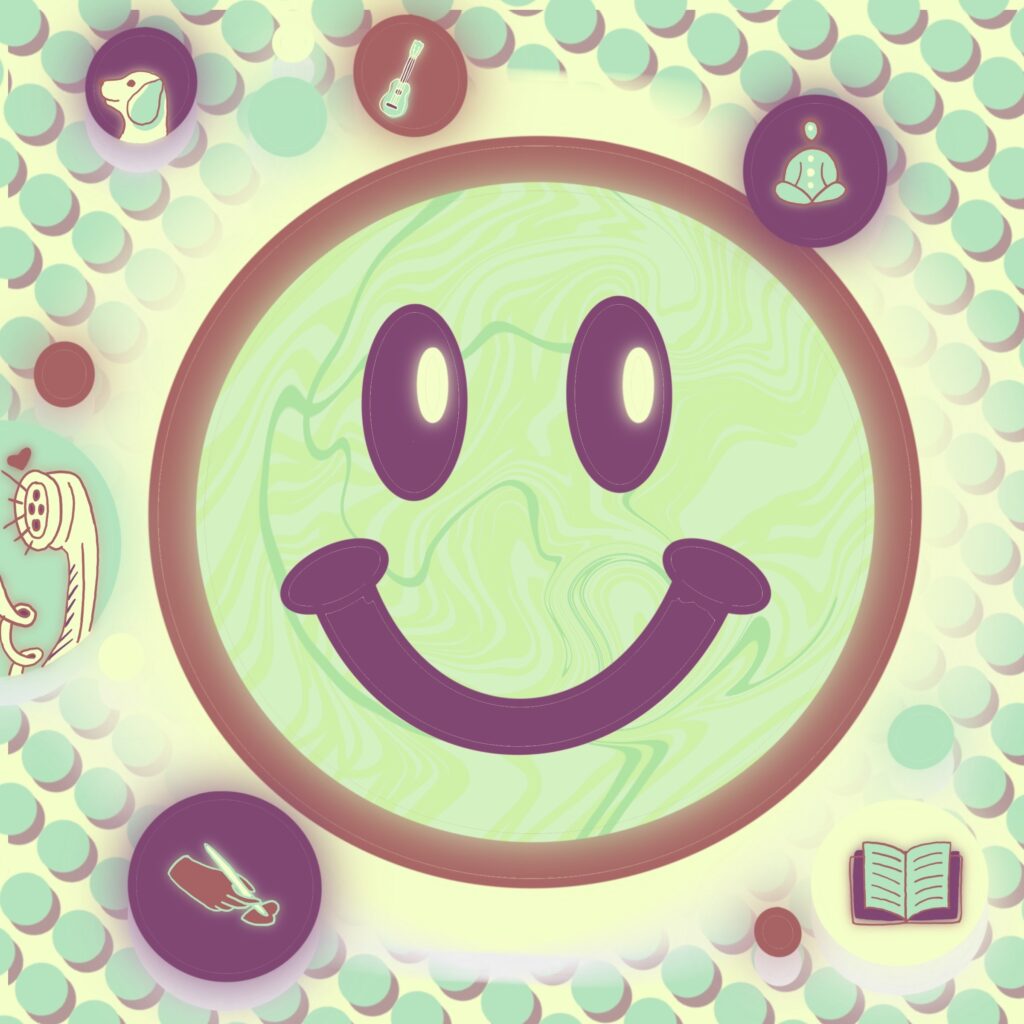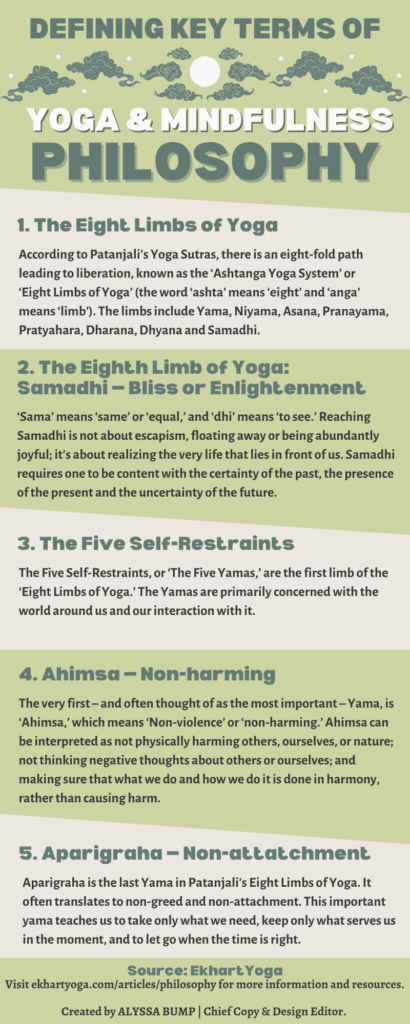ALYSSA BUMP
Chief Copy & Design Editor

Happiness is often a fleeting feeling for college students. Nearly half of all college students are struggling to feel okay — let alone happy.
According to an article titled, “Why American Teens Are So Sad” by Derek Thompson, on April 11, 2022, U.S. teenagers are facing rising rates of depression. The Atlantic article reported American high school students who report “persistent feelings of sadness or hopelessness” rose from 26% to 44% between 2009 to 2021. Thompson noted “this is the highest level of teenage sadness ever recorded.”
Mental health issues are on the rise for college students, too. Since the beginning of the COVID-19 pandemic, college students have reported heightened levels of mental health issues.
In an article published by the Mayo Clinic Health System on July 19, 2022, one in three college students experience significant depression and anxiety, and up to 44% of college students reported having symptoms of depression and anxiety.
At Fredonia, several efforts have been made to provide more mental health resources on campus. Some innovations include the Counseling Center’s partnership with BetterMynd and the new FREDwell Lounge. Countless campus and club events have also been pivoted towards improving students’ mental health.
For the first time at Fredonia, a happiness course is being offered to 25 Honors students. The Spring 2023 HONR-303 course, “The Science of Learning: Mindfulness and Growth Mindset,” is currently being taught by Dr. Guangyu Tan.
“[I did] not have any intention to study happiness. Rather, [I just wanted to] cope with my own mental health issues,” Tan said. “But through this journey, I found [my studies] helpful for me. And I just want to bring that knowledge to the college campus.”
Tan is an associate professor and chair of the Education Department. She has worked at Fredonia for 13 years.
Although Tan’s master’s degree is in education psychology and her doctoral degree is in cultural foundations of education, Tan has “always been fascinated by how science and philosophy impact our life and our perception of happiness.”
Tan’s journey to discovering happiness began in 2018. Originally, she was looking for ways to cope with depression and learn more about her inner self.
In 2019, Tan began training as a yoga instructor. The 200-hour training helped Tan “know who [she] is and find out [her] purpose” during a “middle life crisis point.” In particular, Tan was “fascinated by yoga philosophy.”
In 2022, Tan took an online course, “The Science of Well-Being,” developed and taught by a Yale psychology professor, Dr. Laurie Santos. The New York Times praised this course as “one of the most popular classes to be offered in Yale’s 320-year history.”
“The course is aimed towards college students,” Tan said. “But I found it very helpful for myself.”
Tan even went on to describe the experience as “life changing.”
Tan is open about her previous struggles with mental health issues, and she believes mental wellbeing is the “foundation for happiness.” Happiness can feel impossible to attain without a solid foundation of mental health.
The term “happiness” can be interpreted a number of ways. According to Sonja Lyubomirsky, the author of “The How of Happiness: A New Approach to Getting the Life You Want,” happiness can be defined as “an enduring state of mind consisting not only of feelings of joy, contentment, and other positive emotions, but also of a sense that one’s life is meaningful and valued.”
“I feel like happiness has this happy-go-lucky connotation,” Tan said. “But for me, my happiness comes from contentment … from the gratitude of life.”
Through her studies of yoga philosophy, Tan explained the Eight Limbs of Yoga aim to reach a stage of enlightenment. The eighth and final limb, Samadhi, refers to this stage of enlightenment.

“Enlightenment feels like a light is shining though you. Even during dark times, you have this light in you,” Tan said. “… This light, for me, is knowing who you are and being true to who you are. So every one of us has a light in ourselves, and that’s a light we need to find and kindle.”
By finding and listening to one’s inner self, Tan believes a person can obtain this state of contentment.
“This truth is inside of you, telling you who you are and what life you truly want to live. That is a light you need to follow,” Tan said. “That is the light that leads you to happiness, contentment or Samadhi enlightenment.”
Beyond the eight limbs, Tan is guided by other yoga philosophies like the five self-restraints or yamas. Specifically, Tan values “Ahimsa,” or non-harming, and “Aparigraha,” or non-attachment.
“Non-harming not only means [not] physically hurting anyone else or yourself, but also [not hurting people] verbally and emotionally,” Tan said. “We all know we need to be kind to other people, but we are very critical of ourselves. … [Self] criticism is self harming, so the number one principle to get to the happy place is non-harming.”
Non-attachment, on the other hand, refers to one’s ability to savor and let go.
“Non-attachment is, in a simple word, letting go. When you have it, cherish and savor it, but when it is gone, you must let go,” Tan said. “… If you can practice and learn to let go, … then it will be easier for you to reach Samadhi or this enlightenment.”
These practices take time to develop and become habitual, but Tan stressed the importance of practicing mindfulness and developing personalized strategies.
“I hope our students can learn [about these practices and implement them] on a daily basis,” Tan said. “… I can already see some changes among the students [in HONR-303]. … My hope is to be the light for someone … to be the match for someone else’s light.”
When Tan was approached by Honors Program Director Dr. Natalie Gerber to teach an honors seminar this semester, Tan was thrilled to have the opportunity “to combine positive psychology with yoga philosophy.”
Since the beginning of the course, Tan has received an abundance of positive feedback from students.
“Just last week, I had a student come to me at the end of the class and thank me for offering the course,” Tan said. “She said she has severe social anxiety, but just after three weeks, she felt like she was doing so much better.”
The HONR-303 happiness seminar will be taught again by Tan in Spring 2024, but she would love to see the course become a Fredonia Foundations course open to all students. The Fredonia Foundations curriculum is currently being revised, and Tan said she ultimately wants to give all Fredonia students the resources for happiness.
“My goal is for students to learn the strategies to cope with daily life because we’re always going to have stress, but how can we cope in a constructive way?” Tan said. “… I really want all students regardless of your differences to see each other as human beings, rather than seeing people that are different as enemies.”
Potential for positive change lies in Tan’s yoga philosophies, and she believes the entire campus can benefit from these practices.
“I think the culture of the campus will change, and then the culture of our community will change,” Tan said. “And hopefully the culture of the country will change.”
Alyssa Bump, the author of this article, is currently enrolled in Dr. Guangyu Tan’s HONR-303 “The Science of Learning: Mindfulness and Growth Mindset” course.
